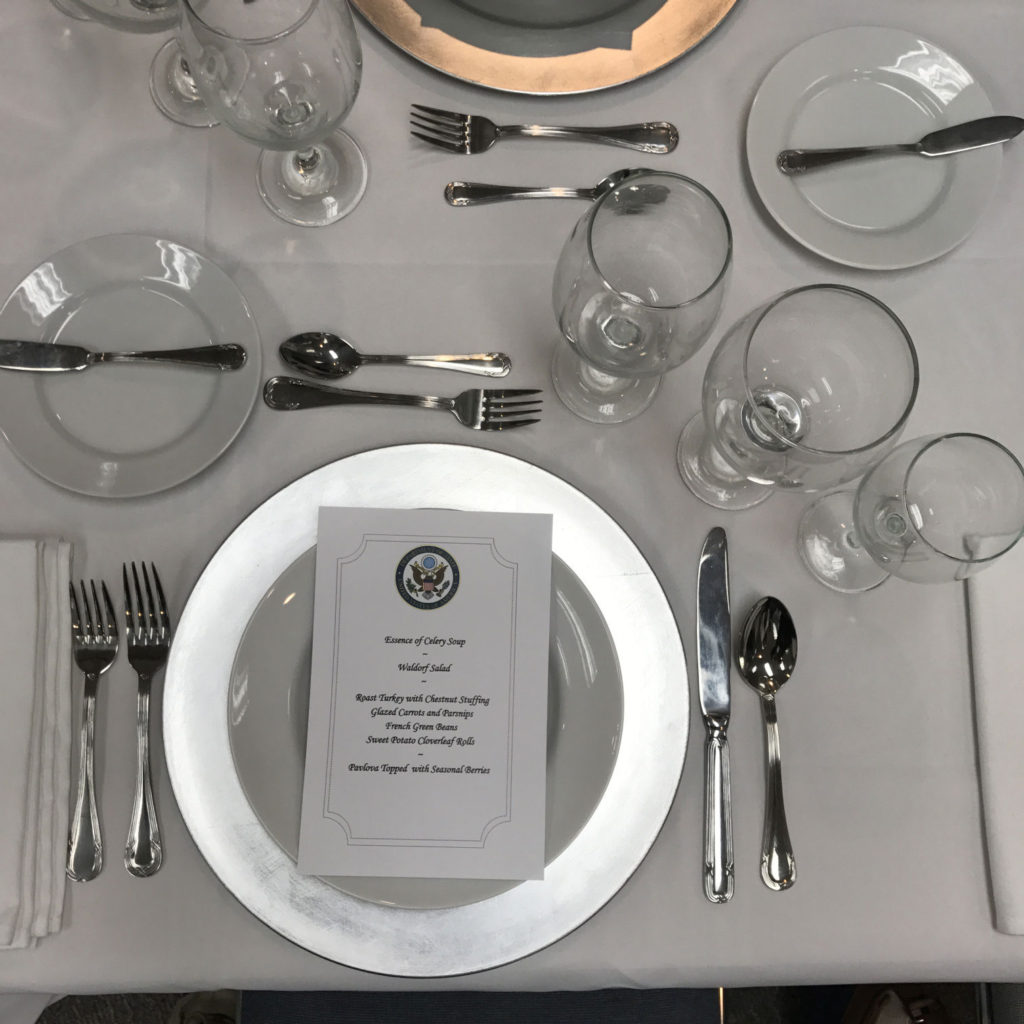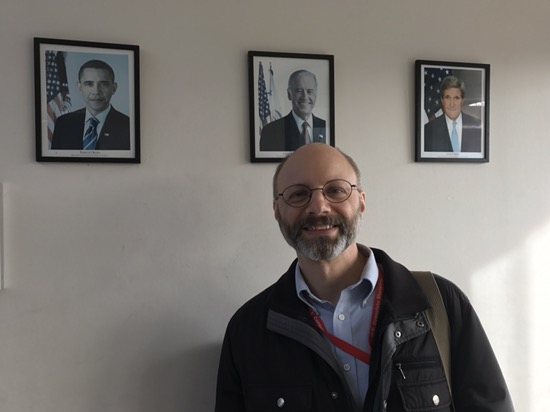Learning a language as a job requirement, part 1.
It’s an old joke: a person who speaks three languages is trilingual. A person who speaks two languages is bilingual. What do you call a person who only speaks one language? American.

I can’t speak for American society as a whole, but I can say that that saying is definitely not true of foreign service officers. We are polyglots. It’s literally in our job description. When we are posted to a foreign country, we are required to speak the language at a certain professional level before departing for post. We are have to be able to diplomat in the language that is spoken in the country.
That is why the Foreign Service Institute teaches so many different languages. I’s be willing to bet that there are some languages that are taught nowhere else in the US other than at FSI. Icelandic is taught in only three colleges in America, for example. And I don’t think that any college offers a course in Estonian. That is completely understandable, of course. There isn’t a high demand for those languages. However, the US has strong diplomatic relations with Iceland and Estonia, and our diplomats have to speak those languages. So the government has to train our diplomats to speak Estonian and Icelandic, as well as Kazakh, Uzbek, Khmer, Pashto, and a bunch of languages in addition to French, German and Spanish.
We have diplomatic relations with 192 of the 195 countries in the world. That doesn’t mean that we have to teach 192 different languages. Many countries speak the same language. For example, French is the official language for 29 countries, and there are ten “Lusophone” countries (I’ll let you look that word up). I heard a colleague once say that if you speak Spanish, then you would meet the language requirement to work in 25% of our embassies and consulates.
Then there are the “boutique” languages, which are spoken only in one country. Some friends of mine have spent nine months learning Thai, Cambodian, or (in my case) Vietnamese. It’s necessary to learn the language in order to do our jobs, but it’s a tremendous investment in time, energy and money. And after we complete our tours in those countries, we aren’t easily able to use the language skill in another tour.
Chinese is only spoken in one country, of course, but it isn’t really a boutique language. Â In addition to our embassy in Beijing, we have five consulates in various parts of China, and they all have to be staffed by hundreds of officers. In addition, there are many Chinese-language designated posts outside of China, in places like Toronto, where we have to process a lot of Chinese visa applicants.
And we aren’t just learning conversational language. We have to reach a “professional” proficiency level before we can go abroad. We have to be able to talk about health epidemics, human rights, nuclear non-proliferation, climate change, and the details of American foreign policy. If we can’t do that, if we fail the language test, then we continue studying until we do pass. I personally know several people who have had to extend their language training because they haven’t achieved the required proficiency.
The government gets a good return on its investment. A colleague of mine likes to say that he made $5 million for the government in two years while working in a consulate in Brazil. He was a consular officer, and he interviewed people who applied for a U.S. visa. Just the visa fee alone brought in a tremendous amount of money (foreigners who want a U.S. visa much pay $160 for an application fee, whether or not they are granted a visa), not counting the amount of money the people would have spent in the U.S. on tourism (I have heard that on average, a foreign tourist spends $5,000 per person when visiting the U.S.). For us to be able to facilitate travel to the U.S. is a great economic benefit to the American economy.
Through the course of a career in the foreign service, an officer may learn up to a half-dozen different languages. I was in language class with a colleague who was learning his fourth language for his fourth tour. It’s a pretty amazing experience, to have language learning be a core part of our job description.
Which also brings up the issue of language probation. Remember that language proficiency is a requirement in the foreign service, and that requirement is enforced. New officers are hired on language probation. We have five years to reach advanced proficiency in at least one language. Or else we get fired. As the famous FAM (Foreign Affairs Manual) puts it: “Candidates who fail to satisfy language probation requirements by the end of their five-year limited appointment will be separated from the Service” (emphasis added).
Yes, it’s great to “get paid to learn a foreign language,” as a lot of people put it. I want emphasize that point. For one’s job to be a student is a rare benefit. I remind myself of that fact every day. But there’s a negative side to this as well. It isn’t always like Christmas morning. The government is paying for my tuition, and paying my salary as I learn, because the government expects a return on its investment. The government is paying for my language study because it expects that I learn the language. If an officer spends months in a FSI language course, and doesn’t achieve language proficiency, then he has some explaining to do.
There is some real pressure on us to learn, and to learn well. The State Department needs its foreign service officers to have solid language skills. The U.S. needs its diplomats to be able to conduct foreign affairs without allowing language differences to get in the way. Foreign service officers need to successfully learn foreign languages. That’s my job right now, and that’s what I am getting paid to do.



 I’ve been in language training for 30 weeks so far. Eight weeks from now, I will take the “End Of Training” test. That test will give me my official language proficiency score.
I’ve been in language training for 30 weeks so far. Eight weeks from now, I will take the “End Of Training” test. That test will give me my official language proficiency score.



 Anniversaries are only meaningful to the people that they directly affect. Yesterday wasn’t special to most people. But for me, it marked three years since I began this amazing adventure.
Anniversaries are only meaningful to the people that they directly affect. Yesterday wasn’t special to most people. But for me, it marked three years since I began this amazing adventure.